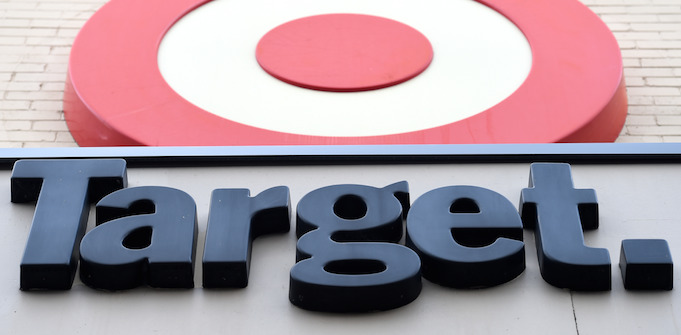
Retail chains Target Australia and Baby Bunting have together been fined just $63,000 for selling “unsafe” convertible baby strollers for years.
The retail chains — which together generated over $200 million in revenue in the past six months — have entered into a court enforceable undertaking with the ACCC, promising to clean up their acts.
The ‘SmartTrike’ products were marketed as safe for use as strollers for transporting babies and young children, despite not complying with mandatory safety standards, the ACCC said on Wednesday.
The consumer watchdog is worried the products could cause injury if they roll up in an “uncontrolled manner” or if a child falls out.
Both businesses have admitted they likely “contravened the Australian Consumer Law” and marketed the products in “a manner which the ACCC considers was misleading”.

The products in question. Source: ACCC.
Baby Bunting was fined $25,200, or 0.000014% of its half-yearly revenue, while Target will pay $37,800, or 0.000006% of the Wesfarmers-owned Kmart Group’s revenue for the same period.
News of the penalties came less than 24 hours after ACCC Rod Sims said in a Sydney speech he wanted the ACCC to secure penalties big enough to hit companies where it hurts — by triggering plunges in share prices.
Baby Bunting (ASX:BBN) shares closed 3.93% higher yesterday at $2.36, while Wesfarmers (ASX: WES) shares were relatively unchanged.
Sarah Agar, head of policy at consumer group Choice, says the slap-on-the-wrist penalties reflect the limited tools the ACCC has available to it.
“For selling strollers that could injure kids this is a pretty woefully inadequate penalty,” Agar tells SmartCompany.
“It’s not because the ACCC is not doing its job … the penalties are slim under infringement notices.
“The government needs to step up and act on reforms that have been proposed and talked about for years now,” Agar says.
The enforcement action followed an ACCC probe into convertible tricycle-stroller products, finding many were designed and marketed to be used as strollers without “key safety features” like parking brakes, tether straps and proper harnesses.
Target thought SmartTrikes were toys
Target thought the SmartTrikes, which it has sold in various forms since 2007 and has marketed to children ages 9-36 months, were actually classified as a toy rather than a stroller.
“Target ranged various models of SmarTrike tricycles between 2007 to 2018 based on the understanding, as confirmed by the manufacturer, that the tricycles were classified as toys, and Target ensured the tricycles met the requirements of the Australian Standard for toys,” a spokesperson confirmed in a statement on Wednesday evening.
However, this didn’t stop the retailer using terms such as “maneuvers like a stroller with outstanding steering performance” and “versatile and safe — it’s the adorable convertible” to market the products.
“Sleep mode lets the high back seat recline, baby rests in comfort and security while the new advanced 360° wheel provides smoother ride, plus it easily transitions from stroller mode to child control,” Target said of the SmartTrikes on its website.
Target’s spokesperson said it takes its safety obligations to customers “very seriously”.
“Immediately upon learning of the ACCC’s investigation, Target withdrew any affected models from sale and fully cooperated with the ACCC’s investigation,” the spokesperson said.
Baby Bunting, which started selling the trikes in 2014, did not respond to a request for comment but made similar marketing claims to Target.
“Get a Smart Trike. These trikes have safety belts that hold your little one in their position. You can take the control and the device will act as a stroller,” Baby Bunting said.
“Meets safety requirements.”
Both retailers have agreed to stop selling the products unless they meet safety standards and have also decided to strengthen their consumer law compliance programs.
Rapid response tempered the ACCC’s hand?
Richard Prangell of Viridian Lawyers says the small penalties associated with the infringement notices is likely due to a rapid response from the retailers.
“If a business is caught in an investigation of this type with the ACCC, I would strongly encourage them to participate fully,” he tells SmartCompany.
“Target has released a statement that they rapidly pulled the offending products from the market when it became aware of the investigation, and I can imagine that that went some way towards limiting the penalties they faced,” he says.
“This is hopefully a good reminder for businesses to take a close look at their supply agreements.
“A responsible wholesaler or manufacturer should indemnify retailers against any failure to meet safety standards in Australia.
“That pushes the risk of an event like this back “up the chain”, so consumer-facing businesses aren’t caught by surprise,” Prangell explains.
NOW READ: Hit them where it hurts: ACCC boss Rod Sims puts retail chains on notice
NOW READ: ‘David and three Goliaths’: Labor tackles corporate mergers with ACCC review policy pitch


COMMENTS
SmartCompany is committed to hosting lively discussions. Help us keep the conversation useful, interesting and welcoming. We aim to publish comments quickly in the interest of promoting robust conversation, but we’re a small team and we deploy filters to protect against legal risk. Occasionally your comment may be held up while it is being reviewed, but we’re working as fast as we can to keep the conversation rolling.
The SmartCompany comment section is members-only content. Please subscribe to leave a comment.
The SmartCompany comment section is members-only content. Please login to leave a comment.